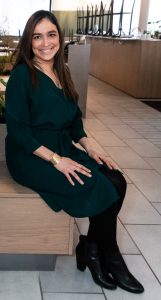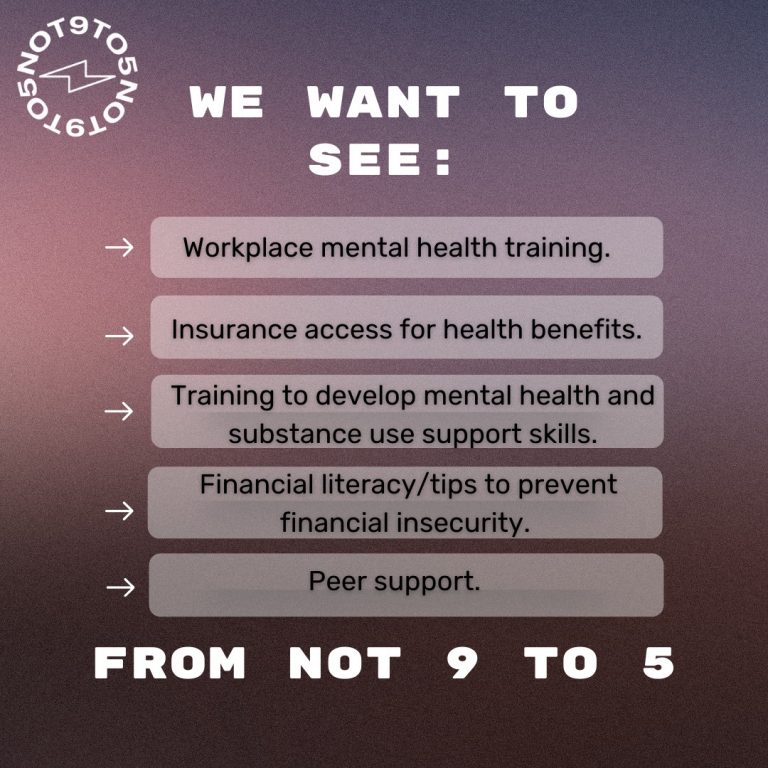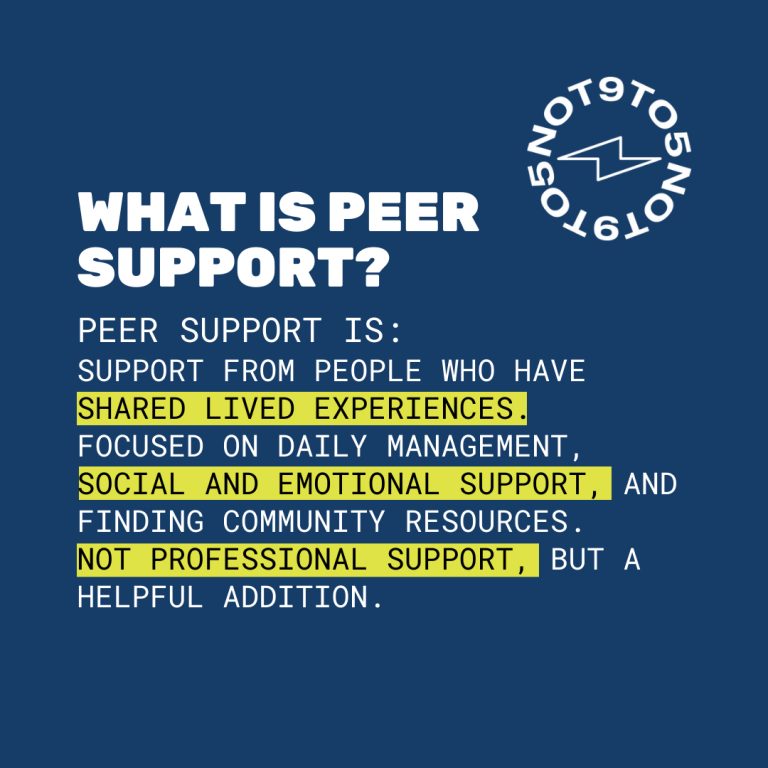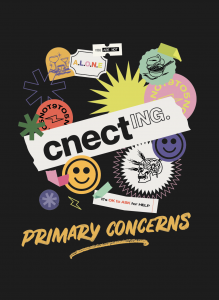Why Hospitality Workers are Turning to Not 9 to 5 for Help – Part 1

With personal experience and acknowledgement of the reality that the physical and psychological struggles of foodservice and hospitality workers are not confined to 9-5, or just the periods of their employment, industry veteran Hassel Aviles founded the non-profit Not 9 to 5, an organization with deep roots and actions in mental health advocacy.
We recently interviewed Aviles to learn more about the launch, the strategy as well as amplify the awareness of such an organization, and its resources, to our foodservice and hospitality community from coast to coast.
I was born and raised in Toronto, Ontario and have worked in and out of the restaurant and hospitality industry for over two decades, since I was seventeen years old. I’d always done more front-line service. I was very passionate about the industry and still am. I’ve worked every front-of-house position you can think of, all the way up to owning my own restaurant.
In 2011, I launched Toronto Underground Market which was a food market that was designed to launch food entrepreneurs and emerging food brands. I did that for three years and after that moved into freelance event production from small, intimate, curated culinary experiences to large conventions, conferences and music festivals.
After doing event production freelance for a few years, I moved into launching Not 9 to 5. I have also lived with mental illness since I was seventeen or so, about the same time I entered the industry. Struggling with mental illness and trauma on my own, even though I figured out how to navigate the healthcare system, was a real struggle in the hospitality industry. That is what inspired me to co-found a non-profit.
Not 9 to 5 is a global leader in mental health advocacy for the hospitality and foodservice sector. I now serve as the Executive Director with a small team and advisory board that helps to steer the ship. For the last three years, we’ve been trying to move towards having an industry that offers more psychological safety in the workplace.
It had been brewing inside of me since I started working as a host, then a server, then eventually a bartender, manager and such. Through all of those jobs that I worked in restaurants, it never felt like a psychologically safe workplace. I didn’t have that vocabulary at the time, I just knew that I was being encouraged to repress and suppress my emotions. I was being encouraged to not discuss those kinds of topics in the workplace.
I once tried to approach a manager about my depression and they basically showed me a pile of resumes to tell me how disposable I was and how I could be replaced tomorrow. That kind of stuff happened every day, all the time. It wasn’t just a one-off, it’s just one story, but I could tell you many others where I had managers point to the exit being like, “if you don’t like it here, there’s the door.”
This was an issue for everyone, men and women; this is a human topic. If you’re human, you have mental health and your mental health is fluid. It can be in a very stable, great place and you can feel really good or it can be in an unstable place where you’re having a lot of challenges. While not everyone has a mental illness, we all have mental health like we all have physical health and I definitely saw many different kinds of gender struggle with this from trans to male to female to non-binary people and everyone in between.

If you work in the hospitality industry, you are affected by the different systems of oppression that exist within it. It’s not just about the individual, it is a systemic issue as well. There is a culture where you’re told not to discuss your emotional experiences or you’re discouraged from vulnerability and told it’s a weakness.
You’re also encouraged towards different aspects of masochism. There are a lot of breaks that don’t get taken even though you’re legally entitled and there is inadequate compensation for your work. There are also very toxic work environments that are quite common in the restaurant and hospitality industry where you’re put in situations that aren’t safe, physically or psychologically. I’m not saying this is everywhere but it’s rampant. A majority of places struggle with these things because a lot of them are industry-wide.
My story was around the fact that I hit a point where I got enough help through different doctors, therapists and mental health professionals. Then, because I was able to heal and educate myself with mental health vocabulary and an understanding of the fact that this isn’t an individual experience, I was able to start speaking about this more openly. I would talk about it in my own workplace when I was at the Toronto Underground Market and I was able to be honest with my own colleagues.
I told everyone that I lived with depression, anxiety and that I was in therapy. I normalized these conversations in my own circle and then saw the effects of that. I couldn’t believe how much better I felt and how everyone around me felt.
Vulnerability is contagious. Once you start sharing your story, others share theirs with you back very quickly. It kept going and going and then I was asked to join a panel in late 2017 where I spoke about my story. I talked about everything very openly without shame and there was very open dialogue. That was the beginning of Not 9 to 5 as at the end of that event, I remember thinking to myself, “I need to keep doing this.” The reaction was so profound. The entire room was putting up their hand and sharing their experience. That’s when I realized that this isn’t just me.

I always say, Not 9 to 5 is founded in instinct but is cemented in data.
After that, in the spring of 2018, we decided to start a website and social media channels. What we got in response was so many people wanting to support this work, share their stories and be able to contribute to openly discussing industry-specific resources, community building and more.
It started as a grassroots movement with community events. Then, in early January 2020, we incorporated as a legal non-profit organization.
Because I’m a former entrepreneur, I do run it like a business. Even though we’re a non-profit, I don’t approach it from traditional non-profit models because I don’t come from a non-profit sector. Up until now, we have been able to thankfully get federal funding. We got a grant in 2020 from the Red Cross and in 2021, we were funded by Future Skills Centre. Both of those come from the Economic Social Development departments of the federal government and that funding is the bulk of where our money comes from in addition to fundraising.
The reason why I explain this is because moving forward, that’s not how I’m building Not 9 to 5. Ultimately, I want it to be self-sustainable. If grants come in, that’s great but I don’t want that to be what keeps it going.
At Not 9 to 5, we do the work we do through practical education and meaningful community building. What that looks like specifically is, for the last two years, we’ve been hosting a ton of online community webinars, workshops, events. We do this through many different channels with many different partners. We’ve worked with James Beard Foundation as well as local regional tourism boards.
We also do a lot of practical education through our social media channels. If you go to our Instagram and Facebook, there is a wealth of information that can help anyone who is struggling with mental health and substance use challenges. If you go to our website and click on Resources, there is a multitude of different resources from suicide prevention to Covid support, hospitality support, virtual therapy support plus resources around workplace mental health, racial trauma, and more, depending on what you need.
Stay tuned for Part 2!
In the meantime, for more information about Not 9 to 5, click here.
To register for CNECTing, their digital platform, and/or the CNECTed certification program, click here.
Stay tuned for Part 2!
In the meantime, for more information about Not 9 to 5, click here.
To register for CNECTing, their digital platform, and/or the CNECTed certification program, click here.

CNECTing is the world’s only digital platform designed for the hospitality industry to distribute educational content about mental health and bring the community together. Created for us by us.
Our training and courses help employers and employees identify, understand and respond to the signs of mental health challenges. We take an intersectional lens of systemic barriers in the hospitality and foodservice industry to support the creation of a psychologically safe workplace for all.

